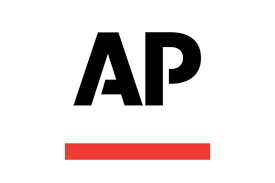Critics of Electoral College push for popular vote compact
Companies, agencies, institutions, etc
AP
the Electoral College
the National Popular Vote Interstate Compact
Trump
Virginia House of Delegates
the Virginia House
Senate
Success
Legislature
the White House
the Pew Research Center
Congress
the U.S. Supreme Court
partisan.“That
the National Conference of State Legislatures
People
Joe Biden
Donald Trump
Mark Levine
Passage
Patrick Rosenstiel
George W. Bush
Steve Sisolak
55.To
John Koza
Wendy Underhill
Barack Obama
Tina Mulally
Andrew Selsky
Groups
Democrat
Republican
Republicans
Democrats
Democratic
Physical locations
Midwest
South
Places
No matching tags
Locations
SALEM
Ore.
Virginia
the District of Columbia
Nebraska
Maine
Arizona
Arkansas
Michigan
Minnesota
Nevada
North Carolina
Oklahoma
Wyoming
America
California
U.S.
Colorado
Connecticut
Delaware
Hawaii
Illinois
Maryland
Massachusetts
New Jersey
New Mexico
New York
Oregon
Rhode Island
Vermont
Washington
The District of Columbia
South Dakota’s
Events
contests.”Nevada
Summary
If the results had turned out differently in some of those states, Trump could have lost the popular vote for the second election in a row but gained the presidency because of the Electoral College system.“It’s an old, ugly mess that frankly should have been obviated some time ago,” said Virginia House of Delegates member Mark Levine, a Democrat who introduced a bill that would have Virginia sign on to the National Popular Vote movement. “Nonetheless, National Popular Vote is working to obtain support for the compact in Congress.”After Bush and Trump won the White House despite losing the popular vote, the push to change the system has become more partisan.“That’s why states that have Democratic majorities are more interested than states with Republican majorities,” said Wendy Underhill, director of elections and redistricting at the National Conference of State Legislatures.The 15 state legislatures that have passed a national popular vote bill since 2007 are all controlled by Democrats: California, Colorado, Connecticut, Delaware, Hawaii, Illinois, Maryland, Massachusetts, New Jersey, New Mexico, New York, Oregon, Rhode Island, Vermont and Washington.The District of Columbia council, controlled by Democrats, also approved it, contributing three electoral votes from the nation’s capital.Over a decade ago, when President Barack Obama, a Democrat, was in office, it was at times a reverse partisan issue, Koza said.A national popular vote measure, for example, passed the Republican-controlled New York Senate back then, but didn’t get through the Democrat-controlled Assembly.“This is an issue that people have a very short-term partisan way of looking at, and the Democrats felt that they had a lock on the White House,” Koza said.
As said here by ANDREW SELSKY